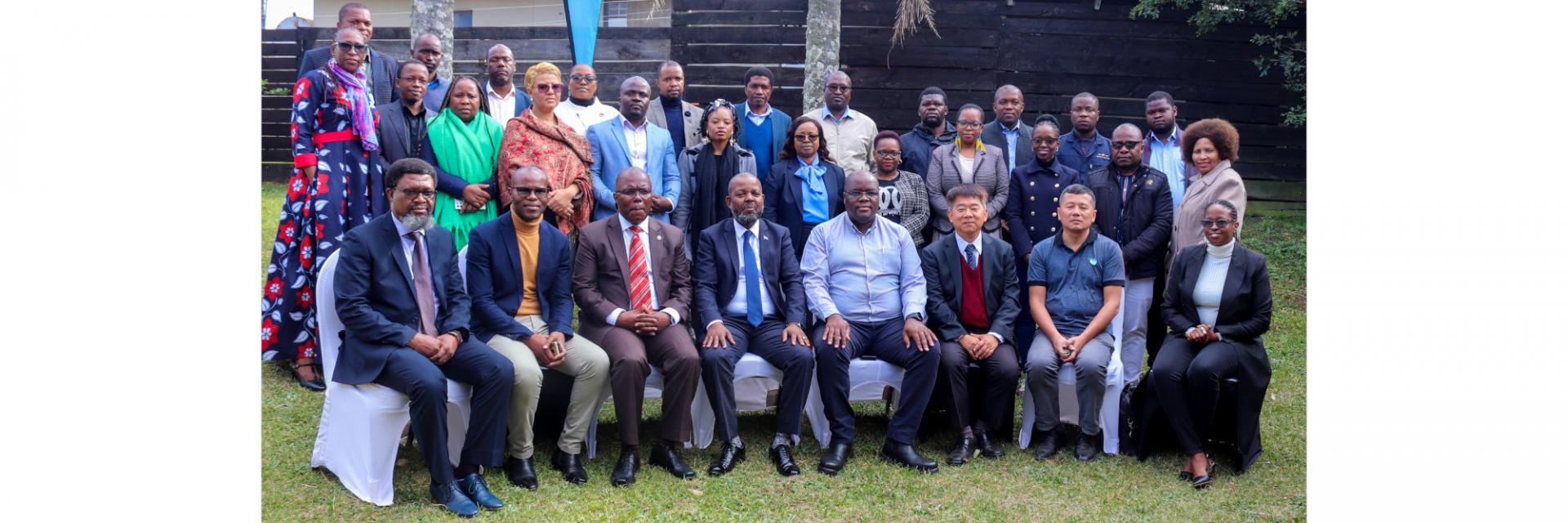Mbabane, Eswatini, July 5, 2023 - An inclusive financing model for MSMEs was developed with technical assistance from the Economic Commission for Africa to alleviate a key constraint for Micro, Small and Medium Enterprises (MSMEs): that of access to finance. Although it is estimated that MSMEs in Eswatini have the potential to provide employment opportunities to more than 65 percent of the workforce and contribute over 50 percent of GDP; this potential remains unfulfilled.
At present, the MSME sector employs approximately 92,000 people, representing about 21 percent of the workforce. Furthermore, the MSME landscape in the country is highly skewed towards the informal sector with an estimated 75 percent operating without a business license, thus facing important constraints to growth as many are unable to produce some of the basic financial documentation required by banks.
MSME Director in the Ministry of Commerce, Industry and Trade, Mr. Mluleki Dlamini, indicated that an inclusive financing model for MSMEs was launched during the height of the COVID-19 pandemic on 1st September 2021 with the goal of expanding access to funding, supporting MSMEs’ growth and solving the issues in the MSME financing ecosystem. He added that since the launch of the model, the Ministry had organized sensitization workshops for stakeholders and capacity building workshops for MSMEs to ensure effective implementation of the model.
In her opening remarks, Ms. Olayinka Bandele, Chief, Inclusive Industrialization Section, ECA, Sub-regional Office for Southern Africa highlighted that "MSMEs are cornerstones of inclusive and sustainable development, with the potential to significantly accelerate industrialization and support high-value-addition activities. They have an immense potential to promote domestic-led growth in nascent and established industries, to strengthen the resilience of the economy in a challenging environment, and to contribute considerably more to employment and poverty reduction.”
In his reflections, Managing Director for Eswatini Development Finance Corporation (FINCORP), Mr. Dumisani Msibi, shared that the MSME Unit had pioneered the review and revamping of the Small-Scale Loan Guarantee Scheme (SSLGS) housed under the Central Bank of Eswatini by expanding the base of financial intermediaries through which MSMEs can access the scheme by including MSME-oriented non-bank financial institutions. Many MSMEs have taken full advantage of this opportunity in the last two- years. In addition, the Citizen Economic Empowerment Bill meant to strengthen the development and growth of MSMEs – was passed during the month of July 2023 and awaits promulgation of the legislation into law.
Speaking on behalf of the Chief Executive Officer for Federation of Eswatini Business Community, Mr. Mavela Sigwane, commended the Ministry’s and ECA’s efforts and early successes in implementing the financing model for MSMEs.
Dr. Vinaye Ancharaz, ECA Consultant gave an overview of Eswatini’s MSME Financing Model. The inclusive financing model is premised on five (5) key pillars: a) improving MSME financial capabilities; b) enhancing banks’ and financial institutions’ capabilities to evaluate MSME projects; c) promoting greater competition in the financial sector; d) expanding MSMEs’ financing opportunities; and, e) broadening sources of funding for MSMEs, especially high-growth enterprises. Dr. Ancharaz highlighted that the prioritization of recommendations in the model, beginning with impactful “low-hanging fruits”, allows for a sequential approach to implementation.
Mr. Sandile Mavuso from Sibongile Beverages extended his gratitude to the Ministry of Commerce, Industry and Trade, through the MSME Unit, for his participation in the training program. He underscored that the new financing model was needed for the manufacturing, arts, and technology sectors to thrive locally and serve both the local and export markets.
The official project close-out meeting with the Government of Eswatini showcased some of the early success stories from implementation of the financing model in Eswatini. Ms. Maria Ngarachu, Economist, Inclusive Industrialization Section at ECA indicated that the intention is to roll out the support to the region, starting with adaptation of the financing model to at least two to three SADC member States. Countries with a clear MSME policy focus and key stakeholders who have already expressed interest in the support to the MSME sector would stand to benefit from the project roll-out.
Issued by:
The Sub-Regional Office for Southern Africa
UN Economic Commission for Africa (ECA)
P.O. Box 30647, Lusaka, Zambia.
Media Contacts:
Ms. Lavender Degre,
Communication Officer,
Tel: +260 211 228502/5 Ext. 21307
DL: +260 211 376607
Email: lavender.degre@un.org

